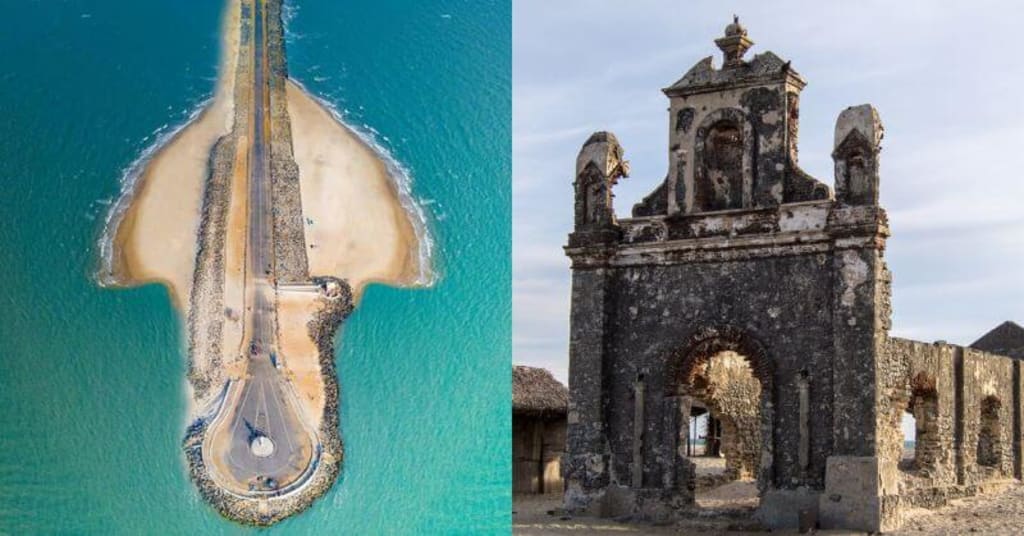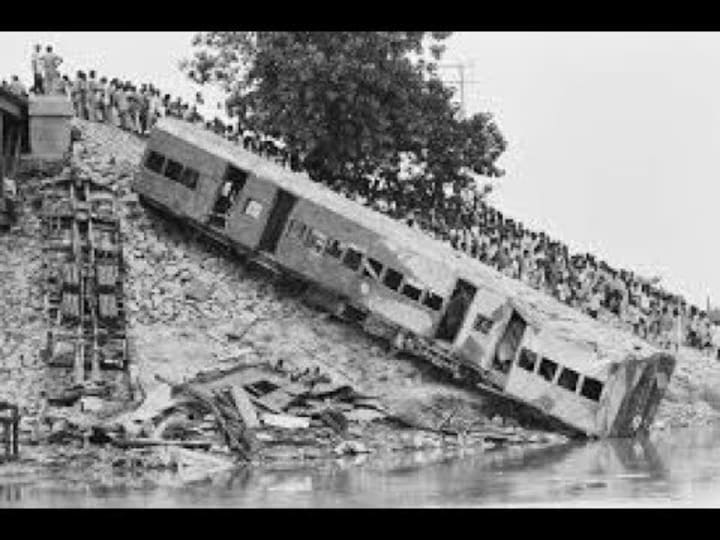
Once upon a time, in the southernmost tip of India, there was a small town called Dhanushkodi. It was a beautiful place, surrounded by the blue waters of the Bay of Bengal on one side and the Indian Ocean on the other. The town was known for its pristine beaches, serene atmosphere, and ancient temples. But in 1964, Dhanushkodi was hit by a deadly cyclone that changed the town forever.
It was the night of December 22, 1964, when the cyclone hit the town. The wind was blowing at a speed of over 200 km/h, and the waves were rising higher and higher. People were caught off guard, and most of them were fast asleep when the cyclone hit. The roaring winds woke them up, and they soon realized that something terrible was happening.
The cyclone was unlike anything they had ever experienced. The winds were so strong that they could lift people off the ground, and the waves were so high that they could engulf entire buildings. The people of Dhanushkodi were terrified, and they didn't know what to do. Many of them tried to run to safety, but it was too late. The cyclone had already wreaked havoc in the town.
The first thing that the cyclone did was to destroy the railway line that connected Dhanushkodi to the mainland. The train that was running on the track was thrown off the rails, and it crashed into the sea. Hundreds of people who were on the train were killed instantly, and their bodies were washed away by the waves. The people who were on the platform were also caught by surprise, and they too were swept away by the waves.
The second thing that the cyclone did was to destroy the buildings in the town. The houses, shops, and temples were all destroyed, and the debris was scattered all over the place. The people who were still alive were left stranded in the open, with no shelter or food. The only thing they could do was to wait for help to arrive.
But help was slow to arrive. The roads were blocked by the debris, and the railway line was destroyed. The only way to reach Dhanushkodi was by sea, but the sea was still too rough for boats to venture out. The people of Dhanushkodi were left to fend for themselves, with no help in sight.

Days passed, and the people of Dhanushkodi began to lose hope. They had no food or water, and the bodies of the dead were rotting in the open. The stench was unbearable, and disease was spreading fast. The survivors were dying one by one, and it seemed like the end was near.
But then, a miracle happened. A boat from nearby Rameswaram, a small island about 20 km away, managed to reach Dhanushkodi. The boat was filled with food, water, and medical supplies, and it gave the people of Dhanushkodi a glimmer of hope. The boat was soon followed by others, and they began to evacuate the survivors to Rameswaram.
It took several weeks to evacuate all the survivors, but in the end, everyone was saved. Dhanushkodi, however, was never the same again. The town was completely destroyed, and it was never rebuilt. Today, all that remains of Dhanushkodi are the ruins of the buildings that were destroyed by the cyclone. The town has become a ghost town, and it serves as a reminder of the deadly cyclone that struck it in 1964.
The Dhanushkodi cyclone was one of the deadliest cyclones in India's history. It claimed the lives of over 1,800 people and left thousands homeless. The impact of the cyclone was felt not just in Dhanushkodi but in the entire region. The destruction caused by the cyclone was so severe that it took many years for the people of the region to recover.
The Dhanushkodi cyclone was a natural disaster that was beyond human control. However, it could have been prevented to some extent if the authorities had taken necessary precautions. The meteorological department had warned about the possibility of a cyclone, but the warning was ignored. The railway authorities did not take steps to suspend train services, and this resulted in the tragic train accident.
After the cyclone, the government set up a committee to investigate the disaster and suggest measures to prevent such incidents in the future. The committee recommended the construction of a seawall to protect the town from future cyclones. However, the government did not act on the recommendation, and this left the town vulnerable to future disasters.
The Dhanushkodi cyclone serves as a reminder of the importance of disaster preparedness. Natural disasters such as cyclones, earthquakes, and floods are a common occurrence in many parts of the world. The impact of these disasters can be minimized if proper measures are taken to prepare for them.
Today, many years after the Dhanushkodi cyclone, the town remains a haunting reminder of the disaster that struck it. The ruins of the buildings that were destroyed by the cyclone still stand as a testimony to the power of nature. The town is visited by tourists who come to see the remains of the once-thriving town. It is also visited by people who come to pay their respects to the victims of the cyclone.
In conclusion, the Dhanushkodi cyclone was a tragic event in the history of India. It claimed many lives and left the town of Dhanushkodi in ruins. The disaster could have been prevented if proper measures were taken, but the authorities ignored the warnings. The town serves as a reminder of the power of nature and the importance of disaster preparedness. The memory of the Dhanushkodi cyclone will forever be etched in the minds of the people who survived it and the generations that came after.





Comments
There are no comments for this story
Be the first to respond and start the conversation.